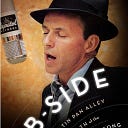“Like” — Wow
Over at the New York Times, opinion columnist John McWhorter, a professor of linguistics, has weighed in on the current (over?)use of the word “like.” His main point is that it serves more of a social than semantic purpose — he says the word “quietly implies that what’s coming up is like itself rather than just itself, which lowers the temperature, keeps the burner on medium rather than high.” (emphasis added)
I agree with that but there’s more going on, I think, as I describe in the essay below, which originally appeared in The Chronicle of Higher Education five years ago. So without further ado, here’s my piece, with some of the time stamps updated.
WHAT SHOULD YOU DO IF YOUR STUDENTS — OR YOUR CHILDREN — SAY ‘LIKE,’ LIKE EVERY 1OTH WORD?
Recently on NPR’s Morning Edition, an American college student studying in China described a class exercise about what the country would be like in 20 years. Referring to some Chinese students in the course, she said, “They wore, like, Chinese military garb to the presentation. And they had, like, the whole banner that said, ‘The 10th anniversary of Taiwan’s return to China.’ And that was, like, a big deal for the Taiwanese students. They were, like, extremely upset over it.”
